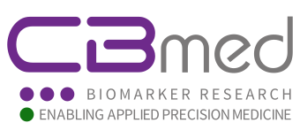AGRA – “Acellular Growth Retardation Assay”
With AGRA, we invented a reliable, easy to assess, functional biomarker with the possibility for fully automated handling that identifies patients at risk of infection. It is a method to determine the state of the humoral immune system in a patient with liver disease.
AGRA is short for “Acellular Growth Retardation Assay” and it is a tool to predict the risk of a patient with liver disease to develop a severe infection. Bacterial infections in patients with cirrhosis are a frequent and life threatening complication. Infections are not only in themselves dangerous, but are a common cause for the deterioration of liver function or the onset of complications with frequently fatal outcome. Up to this point, there was no biomarker which could tell who is at risk to develop infections. This is critical since bacterial infections are often complicated by sepsis, acute renal failure or acute-on-chronic liver failure, prolonging hospital stays and increasing mortality in patients with liver cirrhosis. Therefore, tools to predict severe infections are an urgent clinical need and will help to reach the goal of precision medicine.
AGRA: reliable and easy to assess
With AGRA, CBmed has developed a solution: a reliable, easy to assess, functional biomarker with the possibility for fully automated handling that identifies patients at risk of infection. This biomarker is based on the cell free (humoral) immune response of the body that is capable of detecting and killing pathogens. It utilizes the growth tendencies of a specific strain of bacteria in human serum to predict the outcome of a patient. Simply put, the method uses a small amount of serum – the cell-free component of the blood – to check if it can kill a specific bacterium. This gives valuable information if a patient to whom the serum belongs will be able to fend off bacteria. Patients with high AGRA have a significantly higher risk to develop severe infections compared to patients with lower AGRA. In patients with chronic hepatitis C infection, AGRA can also be used to track the infection risk during antiviral therapy.
AGRA was developed together by CBmed and the Medical University of Graz. Once more, this proved to be a fruitful collaboration because the Medical University of Graz – which is also attached to the University Hospital Graz – has the possibility to define relevant clinical questions and also has access to samples to assess these research questions. At the moment, AGRA is being tested in a clinical study to predict if a patient wo receives a liver transplantation will suffer from a severe infection after transplantation. AGRA will give an outlook into the future of a newly transplanted liver and its recipient and see if this patient will be at risk of developing infections. Ideally, it will be possible to find a way of fine-tuning the immunosuppression that the patients need after trasplantation.
Infection risk of patients with cirrhosis (n=88) according to low or high AGRA. Severe infections required antibiosis and hospitalization.
Benefits of the test
This method can be interesting for different industry-partners. First of all, it is a laboratory test that is using serum, so companies that develop an automatized laboratory test can be interested because they can then develop this method for their platforms and it can be used in routine laboratories. On the other hand, also companies that produce drugs therapeutic agents should be interested in this test, which can be easily done before and during a treatment. All in all, AGRA has great potential. The most promising effects and benefits are:
) predicting the occurrence of severe infections in patients with liver cirrhosis
) accurately identifying patients at risk of infections
) tracking treatment success
) creating personalized risk assessment and treatment of patients with liver cirrhosis.
The patent for this assay has been granted.
The Authors
Angela Horvath, Mag.rer.nat. PhD.
Assoz. Prof.in Priv.-Doz.in Dr.in med.univ. Vanessa Stadlbauer-Köllner






